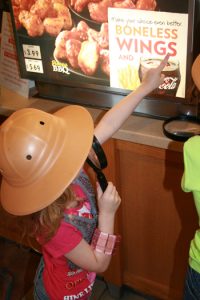“Is Your Child Ready for Kindegarten?”
Do you have a little one in 4-year pre-k? Below are a few comments taken from a Scholastic article, “Ready for Kindergarten? Five teachers tell you what preschoolers really need for next year.”
As I was reading the article, it was easy for me to see how Wordy supports these principles. The article covers the top readiness skills in myriad areas. But, for our blog, here are some quotes from the article and my reflections regarding “basic letter recognition.”
Basic Letter and Number Recognition
“Kindergarten teachers believe that it is their responsibility to teach kids letter sounds and how to write, but they do hope incoming students can recognize most letters by sight.”
“But teachers don’t want you to quiz your child or use workbooks, flashcards, or phonics kits. ‘So much learning can happen without quizzing or sitting down with a pencil’ says Isaacs.”
“Every outing is a spontaneous opportunity to learn,” Isaacs adds. Play guessing games like, “I spy with my little eye…”
Teach by “immersion” and “show kids how letters are all around us,” says Mosier. “Say, ‘Hey, that spells K-Mart. Let’s spell it together. K-M-A-R-T.’”
Most important, always keep the focus on fun. “Relax, and enjoy your children,” Mosier says. “Read, play, and go places. And talk the whole time you’re doing it!”
It IS the responsibility of teachers to teach reading and writing. But what a privilege for parents to be the first, foremost, and most influential teacher of these skills. We can go beyond our culture’s message of simply reading TO our children in preparation for these ‘professionals,’ and take our children on a fun-filled journey of learning early reading skills.
 “I Spy Phonogram Hunts” provide learning, practice, and fun anywhere and everywhere: the pantry at home, the menu in restaurants, the cereal aisle at the grocery store.
“I Spy Phonogram Hunts” provide learning, practice, and fun anywhere and everywhere: the pantry at home, the menu in restaurants, the cereal aisle at the grocery store.
We have always espoused learning on the go, wherever you go. And when you know the English reading code, you can ask your children to do more than just spell the letters in words. You can help them train their brain to see single and multi-letter phonograms (K-M-AR-T). That way you can help them ‘see the sounds’ in words; not just the letters.
Beginning with just recognizing phonograms, you can build a strong foundation step-by-step that eventually enables your child to independently sound out familiar and unfamiliar words.
When done in a fun-filled, enjoyable way, your child can enter kindergarten ready (even already) — and eager— to read.
Teacher bios for Jayne C. Isaacs and Lisa Mosier are included in the article.